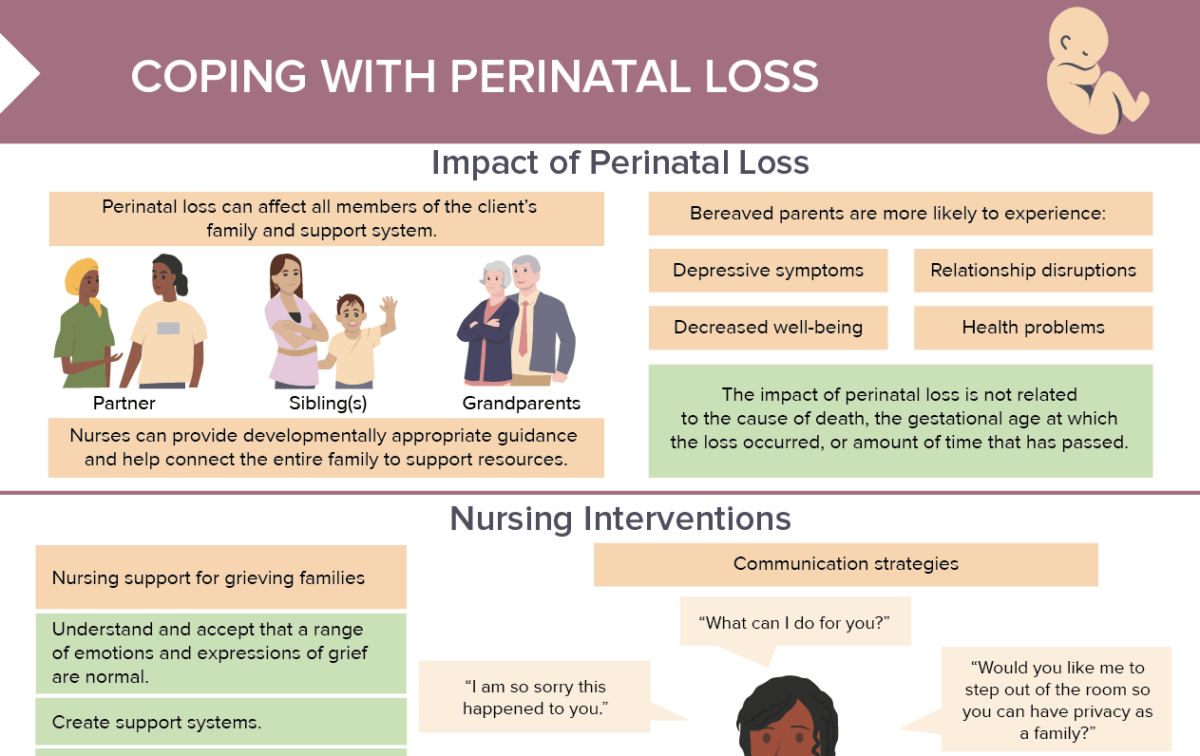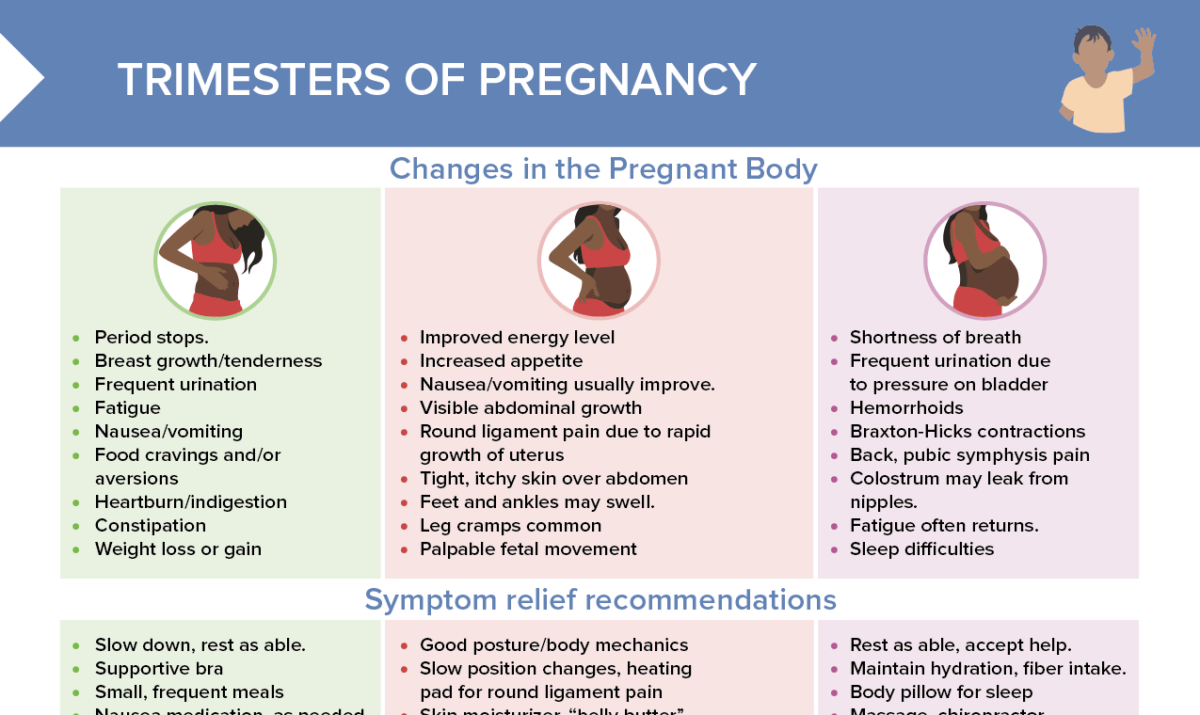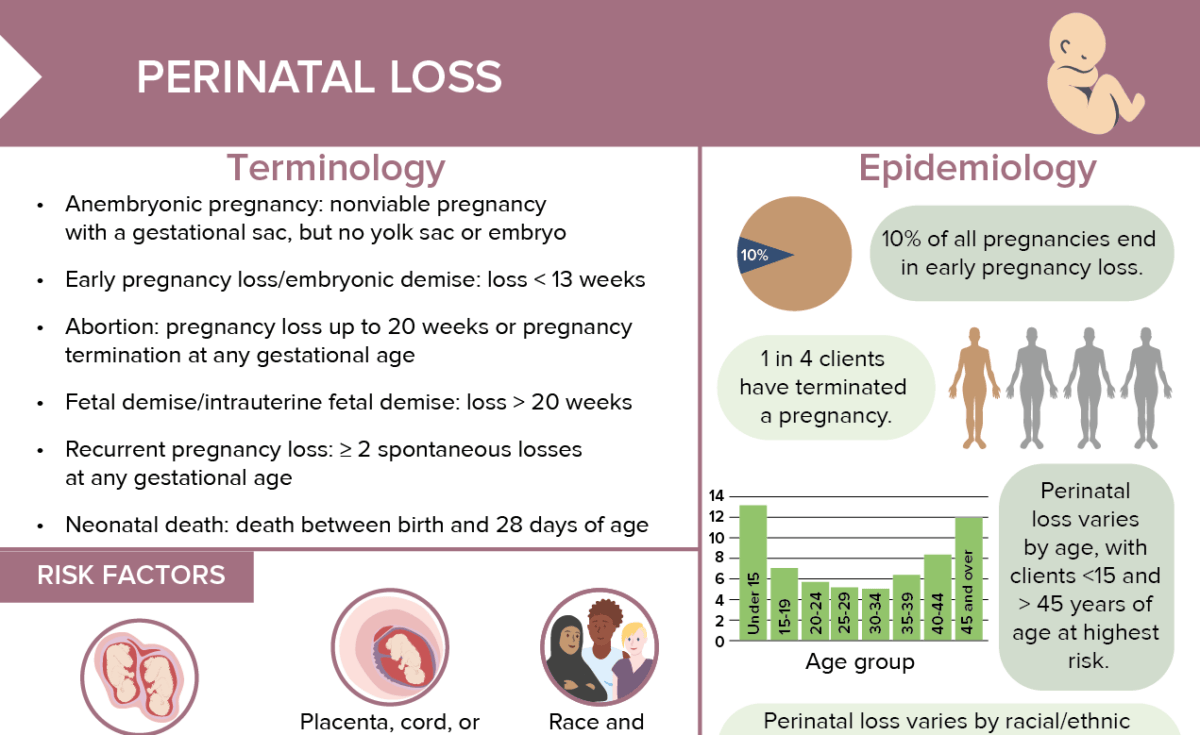Definition: What is perinatal loss?
Perinatal loss refers to the death of a fetus or newborn baby during the perinatal timeframe (from 20th week of gestation to 28 days after birth).
Related videos
Types of perinatal loss and terminology
- Anembryonic pregnancy: nonviable pregnancy with a gestational sac, but no yolk sac or embryo
- Early pregnancy loss/embryonic demise: loss < 13 weeks
- Abortion: pregnancy loss up to 20 weeks or pregnancy termination at any gestational age
- Fetal demise/intrauterine fetal demise: loss > 20 weeks
- Recurrent pregnancy loss: ≥ 2 spontaneous losses at any gestational age
- Neonatal death: death between birth and 28 days of age
How prevalent is perinatal loss?
10% of all pregnancies end in early pregnancy loss. 1 in 4 clients have terminated a pregnancy.
What are risk factors for perinatal loss?
Risk factors for perinatal loss include:
- Multiple gestation
- Placenta, cord, membrane complications
- Race and ethnicity (due to health disparities and discrimination)
- Maternal health conditions (such as hypertension and diabetes)
- Medication or substance abuse
- Maternal age over 35 years (clients < 15 and > 45 years at highest risk for perinatal loss)
- Exposure to toxins/pollutants
- Prior pregnancy loss
- Trauma
- Maternal stress
- Inherited blood disorders
- Conception with an IUD in place
Impact of perinatal loss
Perinatal loss can affect all members of the client’s family and support system. The impact of perinatal loss is not related to the cause of death, the gestational age at which the loss occurred, or amount of time that has passed.
Bereaved parents are more likely to experience:
- Depressive symptoms
- Relationship disruptions
- Decreased well-being
- Health problems
Preparing for birth with fetal demise
- Provide anticipatory guidance regarding baby’s appearance.
- Respect cultural and religious practices.
- Encourage family visitation.
- Help parents to see/hold their baby within first 30 minutes, keep baby warm under warmer.
Nursing care: How can nurses best support clients and their families after a perinatal loss?
Nurses can support clients and their families by supporting them emotionally in their grieving process, and making sure they are connected to helpful resources.
Every family is different, and cultural, religious, and personal beliefs can impact how they experience and grieve this loss. Always be guided by their individual needs and responses.
Bonus download

Coping with Perinatal Loss
Discussion of family impact of perinatal loss and supportive nursing interventions
Emotional support
- Avoid medical terminology when discussing the loss. Use the baby’s name if one was given, and speak with respect and kindness.
- Acknowledge the loss and validate feelings. Avoid cliches or trying to find a ‘silver lining’.
- Ask the client how they are feeling instead of assuming: A range of feelings is normal. Follow the parents’ lead instead of rushing to solutions or conclusions.
- Sensitively offer opportunities for memory-making (photos, footprints), following the parents’ lead.
Communication strategies: examples
- “What can I do for you?”
- “Would you like me to step out of the room so you can have privacy as a family?”
- “I am so sorry this happened to you.”
- “What do you need right now?”
- “I am here and I want to listen.”
- “Your baby is beautiful.”
- “Take as much time as you need.”
Resources
- Assess the client’s psychological distress and available support system.
- Provide information about support groups and mental health professionals.
- Anticipate and accept that your clients may not be ready to engage immediately.
Physical care
Monitor for and support with possible physical postpartum needs, e.g. lactation suppression and post-delivery recovery.

